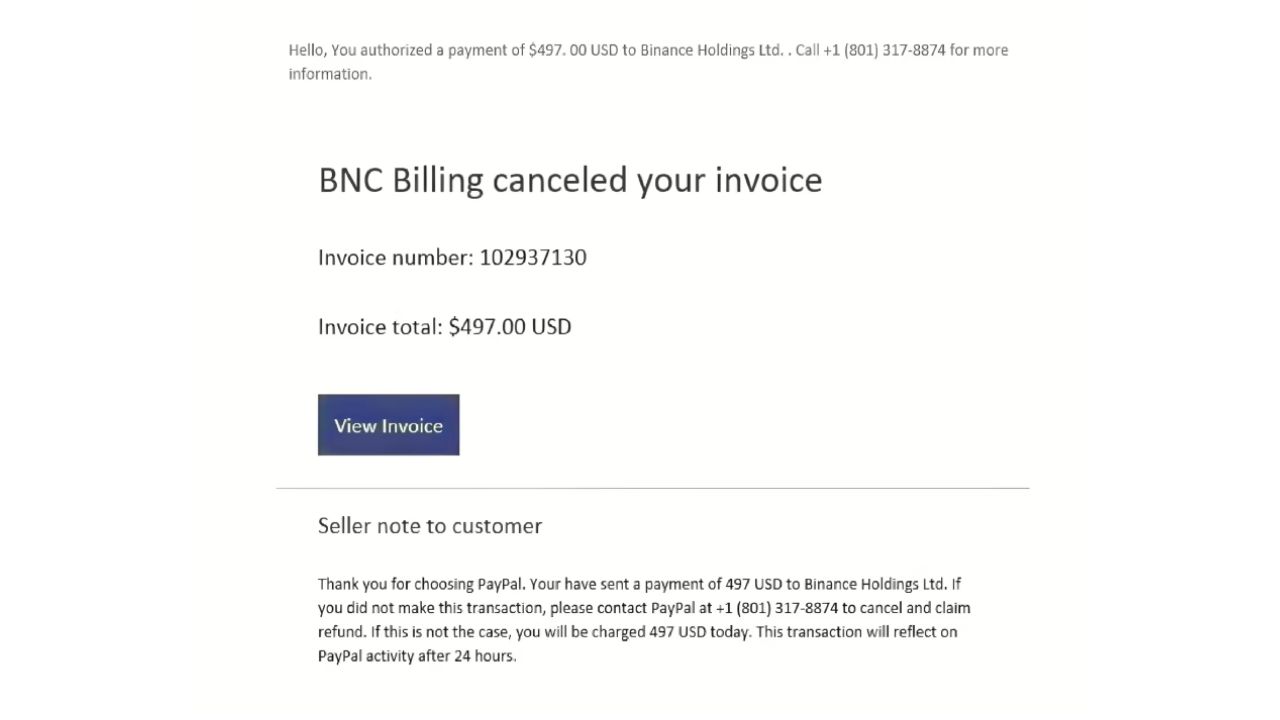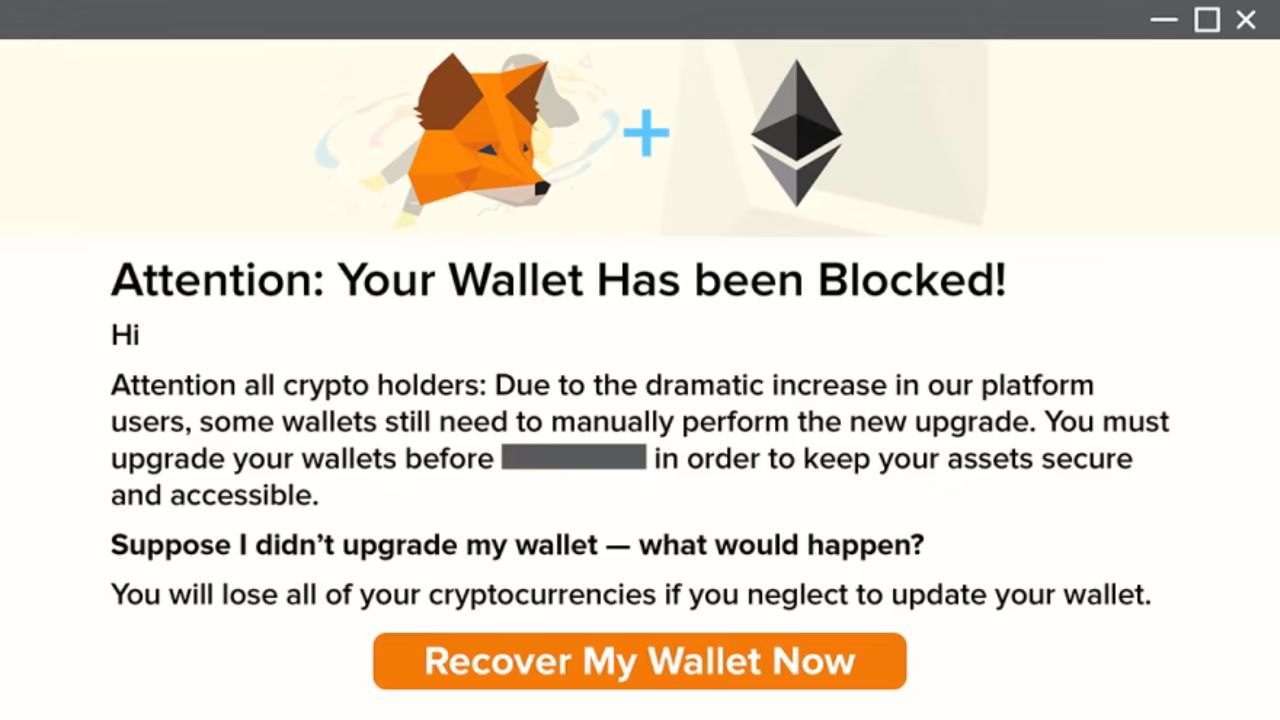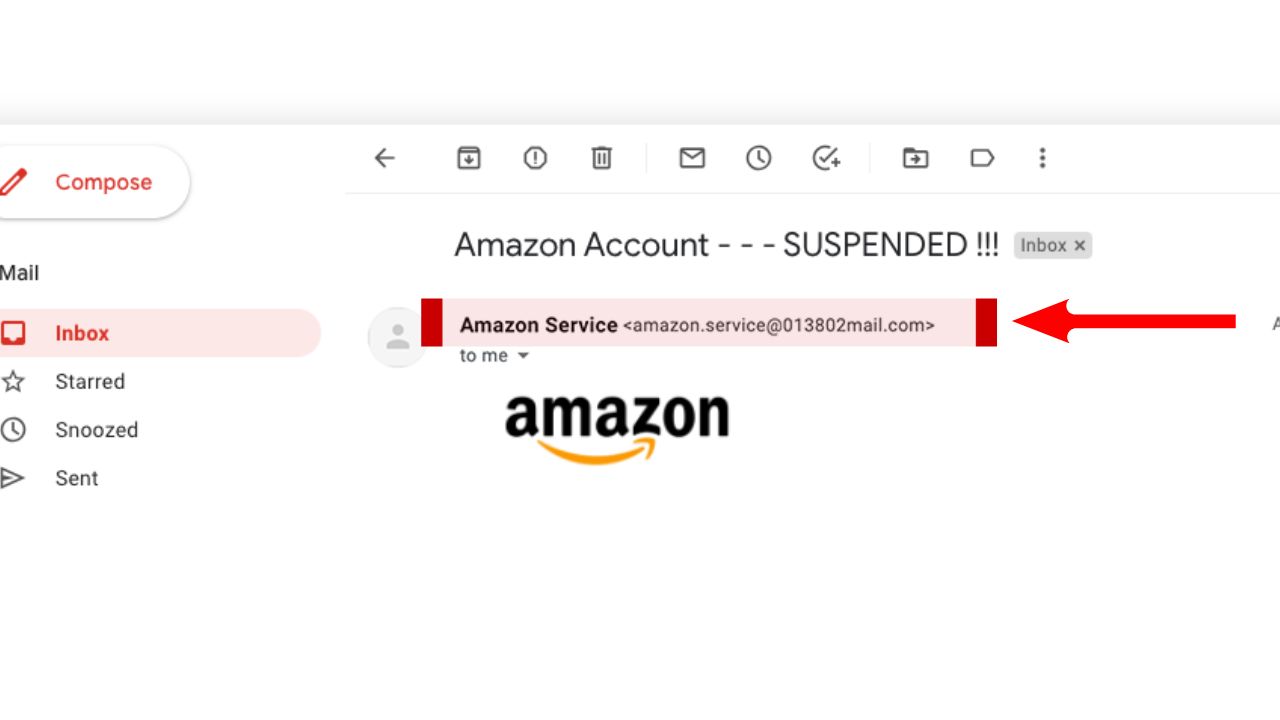In a world where digital deception is as common as pigeons in a city square, urgent emails from familiar names like PayPal or the Crypto wallet website, MetaMask might seem like something you should pay attention to. But hold on! That’s precisely what the crafty cyber tricksters are hoping for. The bait they’re using? Trusted names to make their scam seem believable.
Now, if you’re picturing a leisurely afternoon by the lakeside, reel in hand, you might be in for a surprise. In the cyber world, “phishing” isn’t quite so peaceful. It’s a cunning ploy by fraudsters to trick you into handing over sensitive information. These tricksters masquerade as trustworthy entities and convince you to spill your secrets.
Deception unfolding: the “urgent” email and the fake login page
Here’s how the drama unfolds: an “urgent” email from PayPal or MetaMask shows up in your inbox. It looks genuine – the logo, the official tone, everything. It screams “crisis,” like a security breach or a suspended account. The goal? To get your heart pounding and your cursor hovering over their provided link. Here’s an example of one of these phishing emails from PayPal:

Credit: FTC.com
That link leads straight to a fake login page. Plug in your credentials, and, just like that, the swindlers have hit the jackpot, leaving you wondering what hit you. What’s audacious about this scam is its sophistication. These tech-savvy scammers have managed to make their bogus emails and login pages nearly indistinguishable from the real thing, duping even the savviest among us.
MORE: DON’T FALL FOR GEEK SQUAD, PAYPAL SCAM ALERT
Coming to the rescue: the FTC and its warnings
The U.S. Federal Trade Commission (FTC) has come to the rescue, issuing warnings about these sneaky phishing scams. They remind us that legitimate companies, like PayPal and MetaMask, won’t ask for your personal information or login credentials via email.
Here’s an example of a phishing email from the Crypto wallet provider – MetaMask:

Credit: FTC.com
Protecting yourself: avoiding the bait and reporting the scam
Avoid clicking links or downloading attachments
When you see an email that looks suspicious, treat it like a suspect package – don’t touch or open it. You certainly want to avoid clicking any links or downloading any attachments that might come with it.
Scrutinize sender’s email address
A good detective will always check the details. Look at the sender’s email address. The sender’s address could give it away even if the email looks real. If it doesn’t come from an official company domain or seems a little fishy, you’re likely dealing with a phishing attempt. For instance, consider the image below. A quick glance reveals the Amazon logo, which might make you think it’s legitimate. However, if you take a closer look at the sender, something clearly seems off.
MORE: AVOID SCAMMERS’ SNEAKY TRICKS

MORE: STAY ALERT: ‘SEXTORTION’ SCAMS ON THE RISE 8-FOLD ACCORDING TO FTC
Contact company directly
If you still need to figure it out, there’s no harm in going straight to the horse’s mouth. Reach out to the company directly using their official contact info. Be careful not to use any contact details in the suspicious email. Remember to keep your digital guard up by also doing the following:
Have good antivirus software on all your devices
The best way to protect yourself from having your data breached is to have antivirus protection installed on all your devices. Keeping hackers out of your devices can be prevented if you have good antivirus software installed. Having antivirus software on your devices will make sure you are stopped from clicking on any potential malicious links which may install malware on your devices, allowing hackers to gain access to your personal information.
Special for CyberGuy Readers: My #1 pick is TotalAV, and you can get a limited-time deal for CyberGuy readers: $19 your first year (80% off) for the TotalAV Antivirus Pro package.
Find my review of Best Antivirus Protection here.
If you encounter a phishing email, don’t just delete it and move on. Report the phishing attempt. You can forward the email to the FTC. Your actions might prevent someone else from getting scammed.
FOR MORE OF MY SECURITY TIPS, SUBSCRIBE TO MY FREE CYBERGUY REPORT NEWSLETTER HERE
Use Identity theft protection
If you accidentally clicked a malicious link and a scammer was able to get your personal information, you’ll want a service that will monitor if a scammer uses your personal information for a number of illegal pursuits. My top recommendation for identity theft protection is Identity Guard.
Identity Guard will monitor personal information like your Home title, Social Security Number (SSN), phone number, and email address and alert you if it is being sold on the dark web or being used to open an account. They can also assist you in freezing your bank and credit card accounts to prevent further unauthorized use by criminals.
One of the best parts of using Identity Guard includes identity theft insurance of up to 1 million dollars to cover losses and legal fees and a white glove fraud resolution team where a US-based case manager helps you recover any losses.
Special for CyberGuy Readers: Save up to 51% with my top recommendation is Identity Guard.
Read more of my review of best identity theft protection services here.
Conclusion: stay vigilant and stay safe
So, the next time an “urgent” email with a familiar logo lands in your inbox, keep your cool. Remember to approach cautiously, ignore the link, and directly navigate the company’s website by manually typing in the address. It’s not just about defending your information but mastering the art of digital discernment.
How have these phishing attempts changed how you interact with digital communication, and what steps are you taking to stay ahead of the scammers? Let us know by commenting below.
FOR MORE OF MY SECURITY ALERTS, SUBSCRIBE TO MY FREE CYBERGUY REPORT NEWSLETTER HERE
Copyright 2023 CyberGuy.com. All rights reserved. CyberGuy.com articles and content may contain affiliate links that earn a commission when purchases are made.
🛍️ SHOPPING GUIDES:
KIDS | MEN | WOMEN | TEENS | PETS |
FOR THOSE WHO LOVE:
COOKING | COFFEE | TOOLS | TRAVEL | WINE |
DEVICES:
LAPTOPS | TABLETS | PRINTERS | DESKTOPS | MONITORS | EARBUDS | HEADPHONES | KINDLES | SOUNDBARS | KINDLES | DRONES |
ACCESSORIES:
CAR | KITCHEN | LAPTOP | KEYBOARDS | PHONE | TRAVEL | KEEP IT COZY |
PERSONAL GIFTS:
PHOTOBOOKS | DIGITAL PHOTO FRAMES |
SECURITY
ANTIVIRUS | VPN | SECURE EMAIL |
CAN'T GO WRONG WITH THESE:




24 comments
This is good stuff — question do you have the email address to forward and phishing attempts to the FTC ?? I usually just delete mine, but if it could help someone I would forward them
Hi Steve, you can report to the FTC here: https://reportfraud.ftc.gov/#/